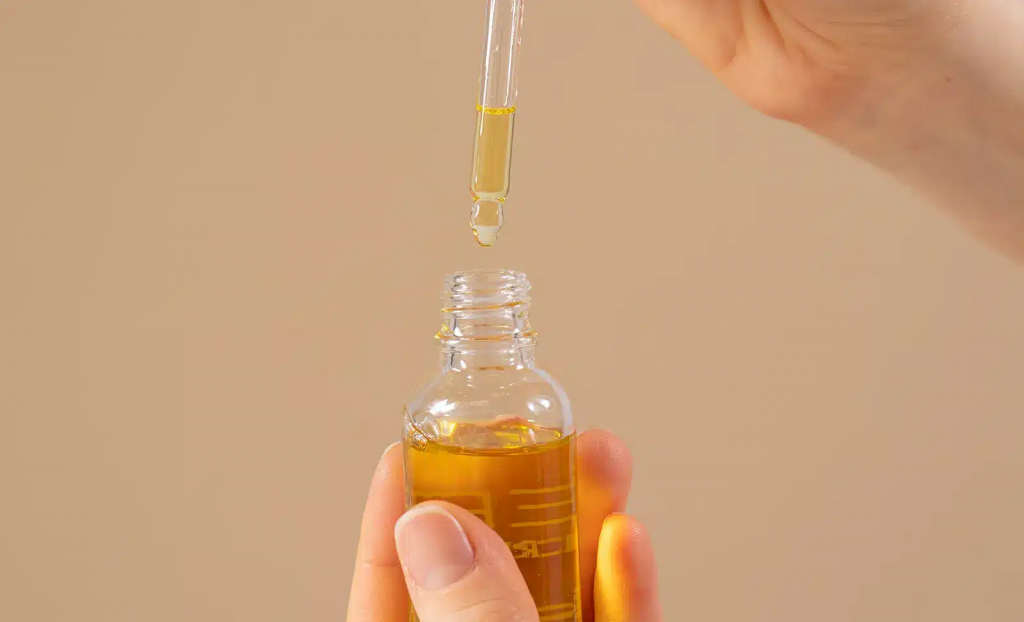Vision problems are among the most common health concerns worldwide. According to the World Health Organization, at least 2.2 billion people suffer from some form of vision impairment or blindness. With conditions like cataracts, dry eyes, and blurry vision on the rise, many people are searching for natural solutions to protect and restore their eyesight. While modern medicine offers corrective lenses and surgeries, some traditional remedies are gaining renewed attention for their potential benefits. One of the most talked-about is castor oil.
Used for centuries in Ayurvedic and folk medicine, castor oil is a simple, inexpensive oil derived from the seeds of the Ricinus communis plant. Today, wellness communities often claim that just one drop of pure, organic castor oil can provide soothing relief for the eyes, improve hydration, and even help support overall vision health. But is there truth to this, and how can you use it safely? In this article, we’ll explore the hidden potential of castor oil for eye care, practical ways to use it, and what science and real-life experiences say about its role in vision support.

What Makes Castor Oil Unique for Eye Care
Castor oil has a thick, moisturizing texture and is rich in fatty acids, particularly ricinoleic acid. This unique composition makes it especially useful for hydration and soothing inflammation.
Key properties of castor oil relevant to eye health include:
- Moisturizing effect: Helps relieve dry eye symptoms by lubricating the surface of the eye.
- Anti-inflammatory properties: May reduce redness, irritation, and puffiness around the eyes.
- Antimicrobial activity: Supports protection against certain bacteria and fungi.
- Antioxidant compounds: Could help neutralize free radicals that contribute to eye aging.
While castor oil does not “cure” eye diseases, its natural compounds make it a supportive option for eye comfort and maintenance when used properly.
Potential Benefits of Castor Oil for the Eyes
1. Relief from Dry Eyes
Dry eye syndrome is common among people who spend hours in front of screens. Applying castor oil drops may help replenish moisture, reduce burning sensations, and improve comfort.

2. Soothing Eye Irritation
Because of its anti-inflammatory qualities, castor oil is often used to reduce redness, swelling, and irritation caused by environmental stressors such as dust or pollution.
3. Support for Clearer Vision
Some natural health advocates believe that regular use of castor oil drops can help reduce blurry vision associated with dryness or mild eye strain. While more scientific evidence is needed, anecdotal reports are widespread.
4. Potential Role in Cataract Prevention
Traditional practices sometimes suggest castor oil for slowing cataract progression. Although modern science has not confirmed this, the antioxidant effects of castor oil may play a role in supporting long-term eye health.
5. Skin Benefits Around the Eyes
Castor oil can also be applied externally to reduce dark circles, puffiness, and fine lines around the eyes, making it a versatile beauty aid in addition to eye comfort.

How to Use Castor Oil for Eye Health Safely
Not all castor oil products are safe for the eyes. It is essential to use only 100% pure, cold-pressed, hexane-free, sterile castor oil labeled for ophthalmic or medical use.
Step-by-step method:
- Wash your hands thoroughly.
- Lie down in a comfortable position.
- Use a sterile dropper to place one drop of castor oil into each eye before bedtime.
- Keep your eyes closed for 1–2 minutes to allow the oil to spread.
- In the morning, wash your eyes with clean water to remove any residue.
Precautions:
- Do not use cosmetic-grade or industrial castor oil on your eyes.
- Discontinue use if you experience pain, swelling, or persistent redness.
- Consult an eye doctor before starting if you have pre-existing eye conditions.

Real-Life Experiences
Many people who have tried castor oil for eye support report improvements in dryness, reduced irritation, and more comfort during the day. For example, John, a 55-year-old office worker, noticed his eyes felt less gritty after a week of nightly castor oil drops. Maria, a teacher who struggled with early signs of cataracts, shared that while her condition required medical supervision, castor oil drops made her eyes feel fresher and reduced glare sensitivity.
Although these stories are encouraging, it’s important to remember that experiences vary. Castor oil is best seen as a complementary wellness practice, not a substitute for medical care.
Quick Reference: Benefits of Castor Oil for Eyes
| Benefit | How It Helps | Application Method |
|---|---|---|
| Relieves dry eyes | Lubricates and hydrates | 1 drop at bedtime |
| Reduces irritation | Anti-inflammatory properties | 1 drop daily |
| Supports clearer vision | Helps reduce blurry vision from dryness | Regular nightly use |
| May delay cataracts | Antioxidants may protect eye cells | Under medical guidance |
| Skin benefits | Reduces puffiness, fine lines | External application only |

Additional Eye Care Tips to Combine with Castor Oil
- Follow the 20-20-20 rule: every 20 minutes of screen use, look at something 20 feet away for 20 seconds.
- Eat eye-friendly foods rich in vitamin A, lutein, and omega-3s, such as carrots, spinach, and salmon.
- Stay hydrated to keep your eyes naturally moist.
- Wear sunglasses with UV protection to reduce cataract risk.
- Get regular eye check-ups to catch early signs of vision problems.
Conclusion
Castor oil is a simple, natural remedy with centuries of use behind it. While it does not replace medical treatment for serious eye conditions, many people find that just one drop of pure, sterile castor oil provides relief from dryness, soothes irritation, and supports overall eye comfort. Used wisely and safely, it can be a valuable addition to your eye care routine.
Frequently Asked Questions (FAQ)
Can castor oil cure cataracts?
No scientific evidence supports that castor oil cures cataracts. It may support comfort but does not replace medical treatment.
Is it safe to put castor oil directly in the eyes?
Yes, but only if it is sterile, cold-pressed, and labeled for ophthalmic use.
How often should I use castor oil eye drops?
Most people use them once daily before bed. Adjust based on comfort and guidance from a healthcare provider.
Disclaimer: This article is for informational purposes only and does not replace professional medical advice, diagnosis, or treatment. Always consult a qualified eye specialist before trying new remedies.




